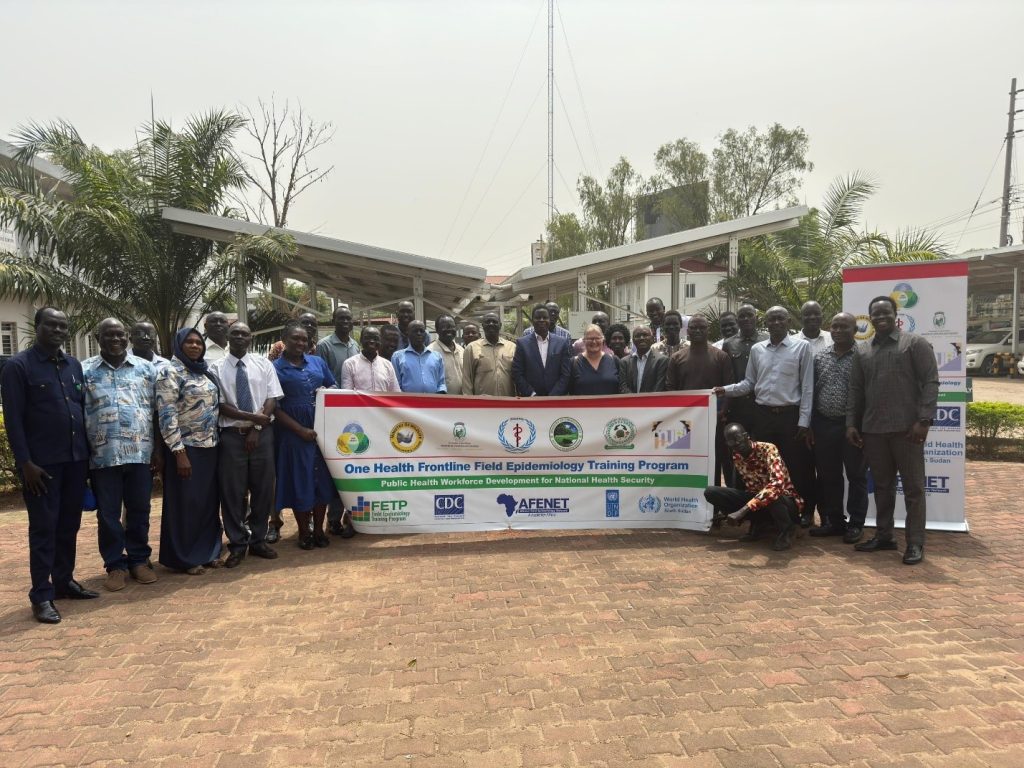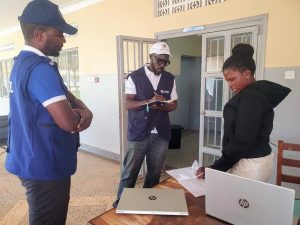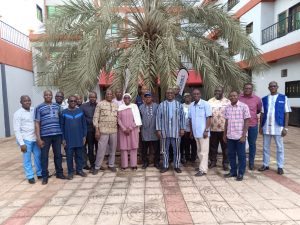South Sudan FETP launches Frontline One Health training in field epidemiology
-
by
AFENET

To fulfill the ambitious global vision of the Field Epidemiology Training Program (FETP) – ensuring that every nation possesses the necessary applied epidemiological capacities to safeguard and advance public health within its borders while also fostering collaboration for global health security – the United States Centers for Disease Control and Prevention (CDC) is supporting the integration of One Health principles and concepts into the existing Frontline and Intermediate FETP curricula. This innovative approach aims to bolster multisectoral One Health training in field epidemiology and public health and facilitate the joint training of professionals across the animal, environmental, and human health sectors.
The evolution of the FETP curriculum is not merely an academic exercise; it represents a proactive response to the complex interplay of factors influencing public health, including zoonotic diseases, environmental degradation, and global interconnectedness. By incorporating One Health perspectives, the new curriculum is designed to foster collaboration among diverse stakeholders, recognizing the interconnectedness of human, animal, and environmental health.
The enhanced training program seeks to cultivate a cadre of surveillance officers equipped with the knowledge and skills to navigate the complexities of One Health challenges. Through a comprehensive curriculum that emphasizes surveillance techniques and outbreak investigations within a One Health framework, trainees will be empowered to strengthen public health systems effectively.
To assess the effectiveness of the FETP-Frontline One Health curriculum, the CDC’s FETP One Health unit is embarking on a pilot initiative in six countries: South Sudan, Kenya, Cameroon, Ecuador, Georgia, and Iraq. This pilot program represents a collaborative effort involving multiple stakeholders, including national ministries of Health, relevant One Health line ministries, and the World Health Organization (WHO).
In a recent milestone, on February 26, 2024, the African Field Epidemiology Network (AFENET), in partnership with the US CDC, the South Sudan Ministry of Health, One Health line ministries, and the WHO, launched the inaugural cohort of the One Health Frontline FETP training program. This cohort comprises 24 national-level health professionals carefully selected from various ministries, including the Ministry of Livestock and Fisheries, Ministry of Wildlife, Ministry of Environment and Forestry, Ministry of Agriculture, and Ministry of Resources and Irrigation.
The composition of this diverse cohort reflects a deliberate effort to engage stakeholders across sectors, recognizing the inherently multidisciplinary nature of One Health challenges. By bringing together professionals from different fields, the training program aims to foster a collaborative ethos and cultivate a shared understanding of the interconnectedness of human, animal, and environmental health.
Beyond individual capacity building, the ultimate goal of the pilot cohort is to catalyze the establishment of a One Health National Rapid Response Team (NRRT) capable of mounting swift and coordinated responses to zoonotic diseases and other One Health events at the sub-national level. This initiative is particularly crucial given the current composition of NRRTs, which predominantly consist of members from the human health sector. By equipping professionals from diverse backgrounds with hands-on epidemiological skills, the program seeks to bridge existing gaps in preparedness and response efforts.
The integration of One Health principles into the FETP curriculum represents a significant step forward in enhancing global health security. Through collaborative partnerships and innovative training initiatives, such as the pilot One Health Frontline FETP program, we can cultivate a cadre of skilled professionals capable of navigating the complexities of 21st-century public health challenges. As we strive towards the realization of a healthier, more resilient world, investments in multidisciplinary training and capacity building will remain paramount.



